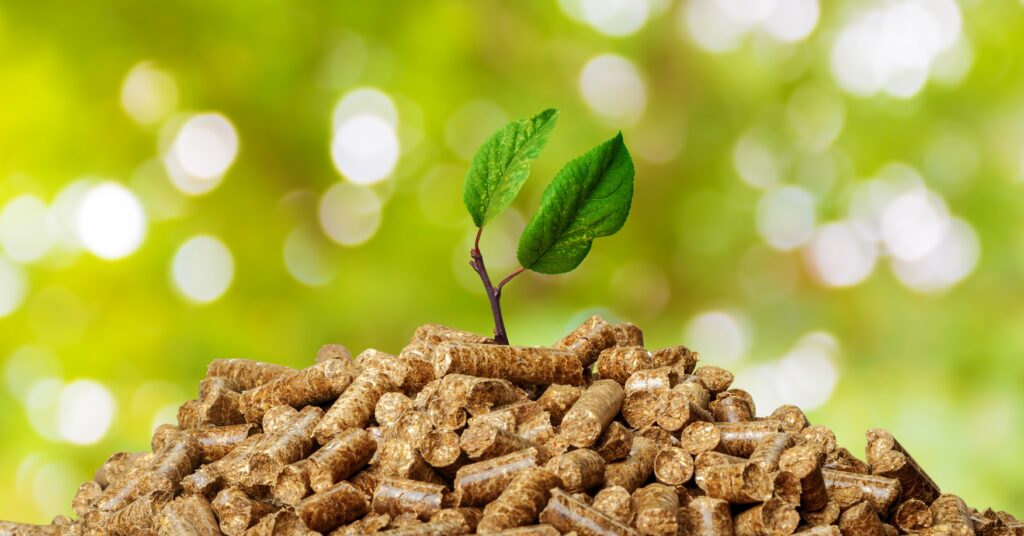How to achieve the full potential of the bioeconomy in accelerating Europe’s transformation?

“The bieconomy is seen as a natural enabler, but it can also be the result of the European transformation”, said Peter Wehrheim, Head of Unit of Bioeconomy and Food Systems at DG RTD, European Commission, at a Cefic Digital Dialogue when presenting the recently published Progress Report on the bioeconomy strategy. The report assesses the progress made in the implementation of the EU Bioeconomy Strategy from 2018 and identifies gaps for possible future EU bioeconomy action in the new policy context.
Speakers from industry and civil society came together to take stock of what has been already achieved and discuss what hurdles prevent further progress in the bioeconomy, what is holding Europe back and what can be done collectively. Increasing policy coherence, creating a market for bio-based chemicals, scaling up funding, and reskilling the European workforce, were some of the main discussion points of the dialogue.
Boosting market uptake with increased policy coherence
According to the European Commission, the bioeconomy covers all sectors and systems that rely on biological resources, such as animals, plants, micro-organisms and derived biomass, organic waste, their functions and principles. It encompasses all associated services and investments that produce, use, process, distribute, or consume these biological resources including ecosystem services. As stressed by Wehrheim, industrial bioeconomy can combine the use of biomass with innovation to replace fossil and mineral materials, contributing to a carbon neutral economy.
According to the progress report, bioeconomy is already an important sector for Europe’s economy, representing about 9% of the EU’s workforce and contributing 5% to GDP. For the chemical industry, the turnover of bio-based products is about 7.5%. Despite the huge potential for the bioeconomy to accelerate the EU Green Deal, Bernard de Galembert, Cefic Sector Group Manager said,
“we need more policy consistency, we need to make sure that the initiatives in the field of carbon cycles, the Circular Economy Action Plan, climate policy, etcetera, are all somehow aligned and considering the bioeconomy as playing [a] critical or pivotal role. We should avoid that the regulations are either overlapping or sometimes even contradicting each other”
Frederic van Gansberghe, CEO at Futerro, added that without mandatory applications from the regulation or help for the industry to grow, it will be very difficult to create the markets in Europe:
“Without markets, we have to be realistic, nobody will invest… People will go where there is cheap biomass, cheap energy, or favourable policy”.
Gansberghe explained that in Europe there is a good biomass source but additional support is needed from the European Commission to create this market.
“Policy should be done in a way to encourage the market appetite”, he said.
Scaling up a bioeconomy with funding and investments
Partnerships and funding for innovation are key to accelerate the “jump” in transition from basic research to commercialisation, as explained by Marco Rupp, Public Affairs and Sustainability at Bio-based Industries Consortium, who also drew attention to the bio-based funding available through the Circular Bio-based Europe Joint Undertaking.
Further investments to support bioeconomy startups, which create a stronger ‘policy pull’, and better consumer awareness of bio-based products could strengthen and scale up the bio-based sector.
Transforming and reskilling the workforce
There is significant job creation potential, particularly when biomass use is combined with innovation. Maike Niggemann, Senior Policy Adviser at IndustriAll highlighted that “the transformation of the economy should happen in a fair and inclusive manner to ensure the maintenance and creation of good quality jobs, and the participation of workers and trade unions in the anticipations and social management of industrial changes. The bioeconomy would be the receiving sector of a transition”.
Marco Rupp used the metaphor of Europe’s bioeconomy as a teenager, questioning “what skills, tools, and support does the bioeconomy ‘teenager’ need to grow into a mature, helpful, and responsible solution in the future?”
With this, Peter Wehrheim added that it is important to start raising awareness very early, starting in primary education. He explained the need for specific skills related to material science, wastewater management, data analysis, environmental auditing, etc. “I think the good news is that there are already various universities which are offering dedicated bachelor’s and master’s degrees on bioeconomy. I think that’s very promising. We have a European Bioeconomy University Alliance, where for instance, University of Hohenheim, in Germany, is included”.
The dialogue ended with a discussion on the understanding of consumers and customers of the value of bio-based products. Speakers agreed that the discussion around sustainable consumption could be a way to raise and draw in more markets to buy these products. They highlighted the crucial role of retailers and brand owners to inform and potentially influence consumer choices.